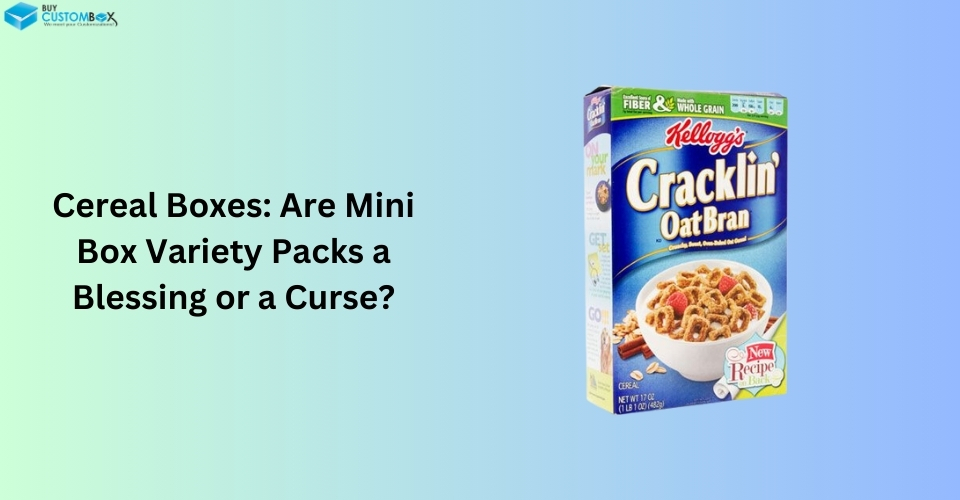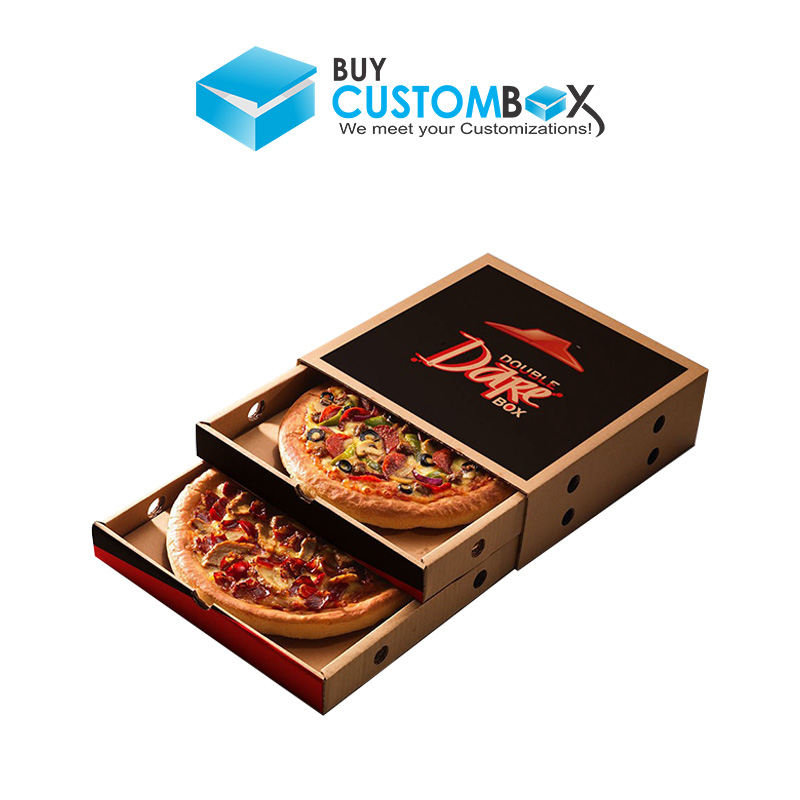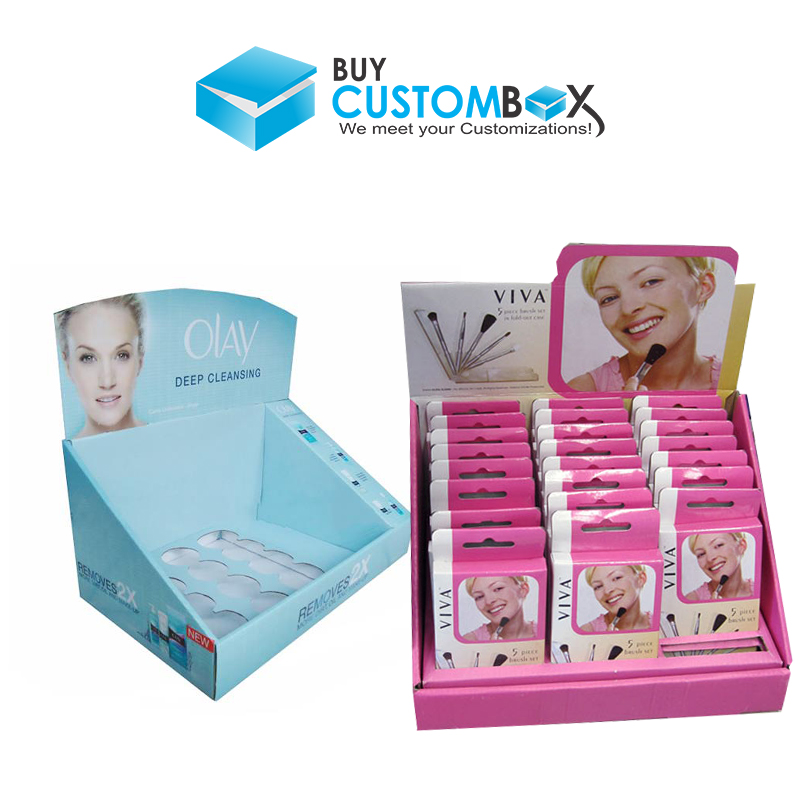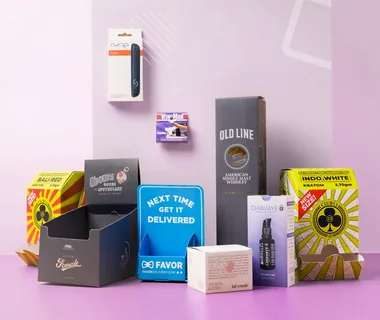In the realm of breakfast essentials, the unassuming cereal box has long held a revered place on kitchen shelves. However, a recent addition to the cereal aisle has sparked perplexing debates: the emergence of mini box variety packs. Are these diminutive versions a blessing, offering convenience and variety, or are they a curse, contributing to environmental issues and excessive packaging waste?
The Puzzle of Convenience
Portion Control Paradox
One indisputable advantage of mini box variety packs is the puzzle they solve in portion control. These petite servings cater to those mindful of calorie intake or seeking a balanced diet. The mystery lies in whether these individualized portions can truly prevent overindulgence and foster healthier eating habits, making them a potential blessing for the portion-conscious.
On-the-Go Enigma
The relentless pace of contemporary life has given rise to the demand for on-the-go snack options. Mini box variety packs step into this enigmatic arena, presenting a portable and convenient breakfast solution. Whether you’re racing to work, hurrying to school, or embarking on a spontaneous road trip, these diminutive cereal boxes promise a quick and fuss-free way to savor a variety of flavors without the need for measuring or pouring. The riddle is whether this convenience justifies the environmental consequences.
The Conundrum of Excessive Packaging
Ecological Dilemma
While mini box variety packs provide a solution to certain consumer preferences, they come wrapped in a significant drawback – excessive packaging. Each petite box adds to the overall plastic and cardboard waste, raising an ecological dilemma. The conundrum lies in the environmental impact of producing, packaging, and discarding these individualized portions. As the world grapples with sustainability challenges, the environmental footprint of mini box variety packs becomes a head-scratching concern.
Recycling Riddles
The curse of excessive packaging extends to the recycling realm, adding another layer to the enigma. Mini cereal boxes, adorned with vibrant designs and laminations, may pose challenges to easy recyclability. The intricate packaging materials can confound recycling processes, contributing to the accumulation of non-recyclable waste. This raises questions about the long-term sustainability of mini box variety packs, turning them into a puzzling piece of the recycling puzzle.
Decoding the Nutritional Mystery
Varied Nutritional Tapestry
One aspect adding complexity to the mini box variety pack debate is the diverse nutritional tapestry of different cereals. While some mini boxes may contain nutritious, whole-grain options, others might harbor sugar-laden and artificially enhanced counterparts. The blessing of variety can morph into a curse if consumers unknowingly opt for less healthy options within the assortment. This makes it imperative for consumers to scrutinize nutritional labels and make informed choices based on their dietary mysteries.
Limited Choices for Dietary Detectives
The mini box variety pack trend may pose challenges for dietary detectives seeking gluten-free, sugar-free, or other specialized cereal options. The curse lies in the potential exclusion of certain consumer segments, emphasizing the need for greater diversity and inclusivity in the cereal market. Navigating the nutritional maze within these variety packs becomes a challenge for those with specific dietary restrictions or preferences.
Cost Considerations Conundrum
Sampling Puzzles
A blessing for those on a budget, mini box variety packs offer an economical way to sample a range of cereal flavors without committing to a full-size box. This is particularly advantageous for those who relish variety but may be hesitant to invest in larger quantities of a single flavor. The affordability of these mini packs can be a significant blessing for consumers seeking cost-effective breakfast options.
Cost per Ounce Enigma
On the flip side, the curse of mini box variety packs emerges when evaluating the cost per ounce. In many cases, these smaller portions are more expensive on a per-ounce basis compared to purchasing a standard-sized box. The allure of variety may come at a higher price, leading some consumers to ponder whether the convenience is worth the additional cost. This economic consideration adds a layer of complexity to the blessing-or-curse debate, creating a cost per ounce enigma.
The Enigmatic Future of Cereal Boxes: Striking a Puzzling Balance
As the controversy surrounding mini box variety packs unfolds, the future of cereal packaging may involve solving the enigma of striking a balance between convenience and sustainability. Manufacturers and consumers alike must navigate the intricate landscape of nutritional considerations, environmental impact, and economic factors. The blessing of variety and convenience should not unravel the threads of ecological responsibility.
Conclusion
Cereal boxes, with their mini box variety packs, present an enigmatic puzzle in the breakfast aisle. The blessing of convenience, on-the-go options, and economical sampling is countered by the curse of excessive packaging, environmental concerns, and potential nutritional pitfalls. As consumers become increasingly conscious of their choices, cereal manufacturers must respond by unraveling innovative packaging solutions that prioritize both convenience and sustainability. The future of cereal boxes may well hinge on piecing together a harmonious equilibrium that satisfies the diverse needs of consumers while minimizing the environmental impact of breakfast convenience.








